Photo credit: ‘Boycott’ by Martin Ableggen. Used under CC BY-SA 2.0 DEED via Flickr.com
Should people boycott Israeli products based on the siege of Gaza, stalled peace talks and expulsion of farmers from land in the West Bank?
Tony Daly investigates key talking points on both sides of the debate.
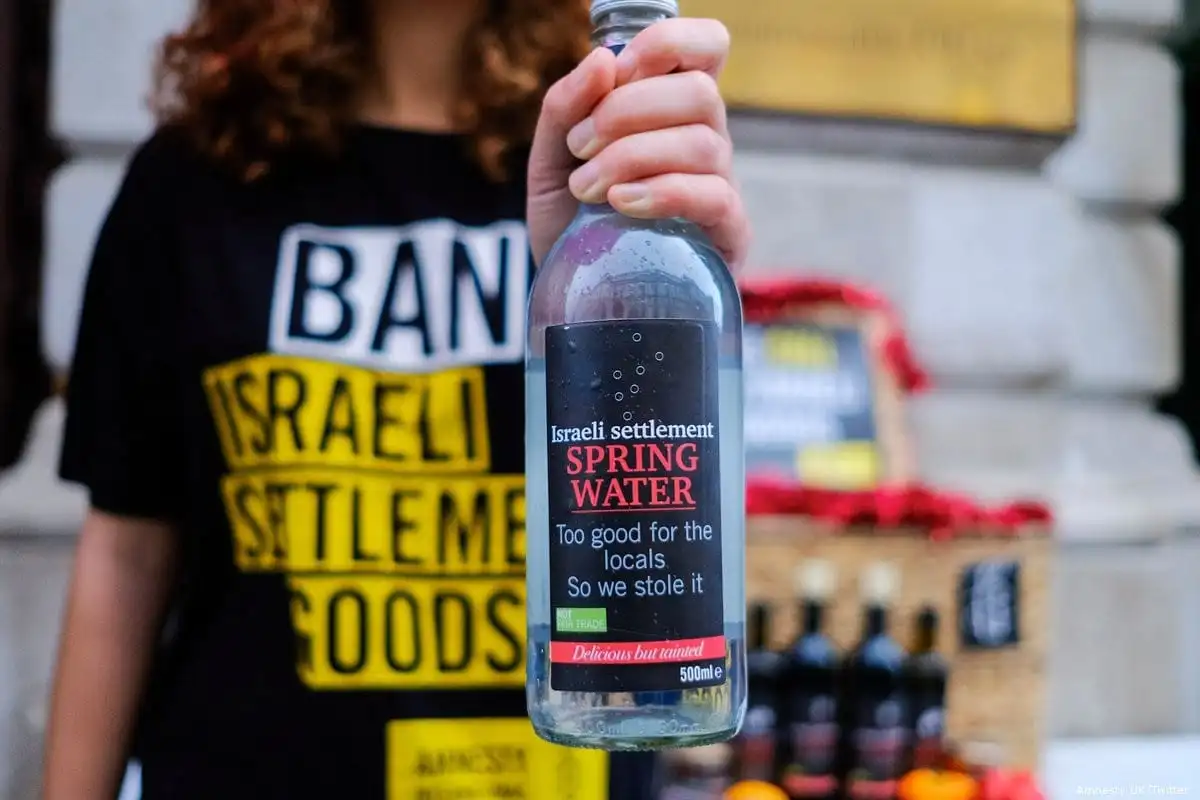
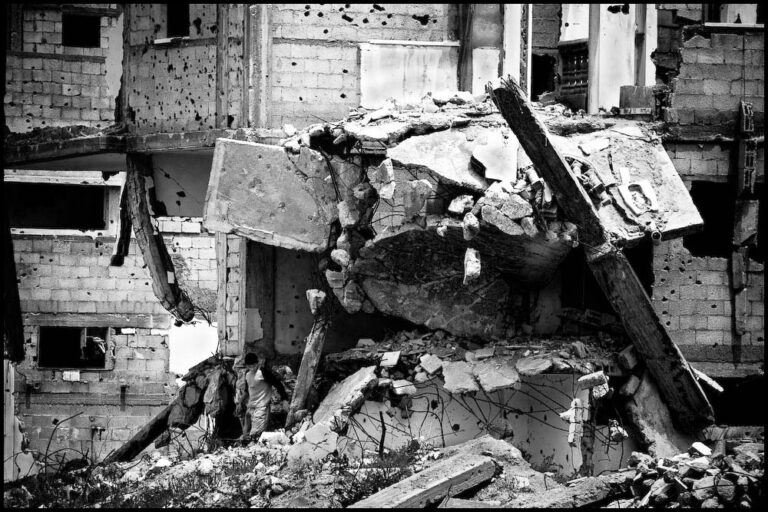
Update: 3-point guide to Palestine and Israel
A guide for teachers and educators
(2023 update)
The 50 day war in Gaza between the Israeli military and Palestinian militants (Hamas) in the summer of 2014 was the latest in a cycle of entrenched conflict in the Palestinian occupied territories – the third assault on Gaza in six years. The occupied Palestinian territory (OPT), which includes Gaza and the West Bank, has a been a source of conflict and dispute for more than 45 years.
The Gaza strip, regularly cited as the world’s largest open air prison, has been under an economic blockade by air, sea and land for the past eight years after a series of bombings and attacks conducted by Hamas in Israel, as it was preparing to withdraw settlers and soldiers from Gaza in 2006. Peace talks between Palestinian authorities and Israeli officials have long since faded as ordinary people in Gaza have been squeezed into a humanitarian crisis.
In total, over five million Palestinian refugees are scattered across the Palestinian territories and in refugee camps in Syria, following arrests, home raids and demolitions, expulsions, land seizures and harassment from Israeli settlers.
The Times of Israel newspaper reported:
“The conflict began July 8, but was preceded by several weeks of tensions. The current round of confrontations began with the June 12 abduction-killing of three Israeli teens in the West Bank, blamed by Israel on Hamas, followed by the apparent revenge killing of a Palestinian teen, the roundup of hundreds of Hamas activists by Israel, and barrages of Gaza rocket fire on Israel.
Israel launched airstrikes it said were aimed at stopping the rocket fire. It expanded the operation July 17 by sending in ground forces, in what it described as a mission to destroy the network of tunnels dug by Hamas under the border.”
The statistics at the end of 50 days of violence in the region has set the context for renewed calls around the world (and in Ireland) to boycott goods and services originating from the state of Israel: 2,133 killed (more than 75 per cent civilians and 500 children killed); 11,000 wounded, 64 Israeli soldiers and six Israeli civilians killed; 17,000 homes destroyed or badly damaged; over 3,300 rockets fired into Israel by Hamas; 21 suspected Israeli informers killed by Hamas. UK Newspaper, The Guardian,reported:
“Around a third of Gaza’s 1.8 million people [540,000] have been displaced, many now living in United Nations shelters. Schools, hospitals, factories, farms, mosques and infrastructure such as power and water plants were hit. Reconstruction could take up to 10 years, say analysts.”
There have been demonstrations across the world over the summer of 2014 – including in Ireland. Up to 3,000 people marched to the Israeli embassy on 26th July; 4,000 people on 2nd August; 10,000 on 9th August. The Irish Palestinian Solidarity Campaign has established Boycott Thursday across Ireland. The Irish Congress of Trade Unions has encouraged its 832,000 members and the Services, Industrial Professional and Technical Union has encouraged its 200,000 members to join the boycott on goods and services from Israel.
Some believe that a concerted international response from citizens around the world to the siege of Gaza, stalled peace talks and expulsion of farmers from land in the West Bank is required.
Israel is critically dependent on external support only in one respect: continued financial and military subsidy from the US, estimated at more than €2.28bn ($3bn) a year in normal times, increasing at times of crisis.
Israel is being accused of committing war crimes. Hamas is being blamed for hiding in civilian buildings and neighbourhoods so as to increase collateral damage of the civilian population in Gaza. Debates on whether people in Ireland should boycott Israeli goods in response to the above (cultural, manufactured products or otherwise) are highly charged and hugely contested by all sides.
The Gaza strip, regularly cited as the world’s largest open air prison, has been under an economic blockade by air, sea and land for the past eight years after a series of bombings and attacks conducted by Hamas in Israel, as it was preparing to withdraw settlers and soldiers from Gaza in 2006. Peace talks between Palestinian authorities and Israeli officials have long since faded as ordinary people in Gaza have been squeezed into a humanitarian crisis.
- The Debate -
Arguments For the Boycott 1: Israeli authorities continue to flout international human rights law
United Nations human rights investigators called on Israel on Jan. 31, 2013 to halt the expansion of settlement areas and withdraw all Jewish settlers from the occupied West Bank, saying that its practices violated international law. Over 100 settlements have been established in the West Bank and dozens more have received retroactive support once initiated.
Israeli human rights organisation, B’Tselem [1] agrees: “The very existence of the settlements violates Palestinian human rights, including the right to property, equality, a decent standard of living and freedom of movement. Israel’s dramatic alteration of the West Bank map has precluded realization of Palestinians’ right to self-determination in a viable Palestinian state”.
Counterpoint:
The West Bank and Gaza are disputed, not occupied, a point advanced by the Israel Ministry of Foreign Affairs , with both Israelis and Palestinians exercising legitimate historical claims.
In 2003 the Israel Ministry of Foreign Affairs argued that there are a range of ‘forgotten facts about the West Bank and Gaza Strip when it concerns disputed territories. This included use of the term ‘occupation’:
“The claim that any occupation – no matter the reasons for its establishment or its continued existence – is illegal is not consistent with the principles of international law. The international legal system does not outlaw occupation. Rather it uses international conventions and agreements to regulate such situations.”
Writer Jeffrey Helmreich, commenting in the Jerusalem Centre for Public Affairs [2], further states that, “There was no Palestinian sovereignty in the West Bank and Gaza Strip prior to 1967. Jewish peoples have a deep historic and emotional attachment to the land and, as their legal claims are at least equal to those of Palestinians; it is natural for Jewish people to build homes in communities in these areas, just as Palestinians build in theirs.”
Arguments Against the Boycott 1: ‘Human rights’ don’t protect people in Israel from rocket attacks
People in Israel live in a permanent situation with a very real risk of rocket attacks from terrorists groups like Hamas and suicide bombers striking in public spaces. The recent offensive in Gaza during the summer of 2014 resulted in2,927 rockets launched at Israel from Gaza [13], as reported in the New York Times. The threat of violence is uniquely terrifying for people in Israel and human rights arguments do nothing to shield civilians from daily attacks. To talk about Israeli businesses in human rights terms alone is to ignore the struggles everyone in Israel face every day. Human rights talk simply appeases unaccountable violent terrorists hiding in Gaza
Former special assistant to President Obama and Middle East negotiator Dennis Ross agrees: “So long as Israel exists, Hamas will seek to fight it. It was not Israel’s opposition to the reconciliation agreement between Hamas and the Palestinian Authority (PA) that led to this latest round of warfare. Rather, it was Hamas’s political isolation and increasingly desperate financial situation” [14].
 Counterpoint:
Counterpoint:
An eye for an eye is no way to seek peace in the long term. Human rights must be respected. Israel cannot keep acting outside of international laws between states in the world – this puts everyone at risk.
As reported in the Guardian, Hamas dropped reference to the destruction of the Israeli state in its 2006 election manifesto, while retaining the right for armed struggle. The shift in emphasis came as Hamas found itself under pressure from the Palestinian president, Mahmoud Abbas, and from foreign governments to accept Israel’s right to exist and to end its violence if it wants to be accepted as a political partner in a future administration[15].
Gaza has been under a seven year siege since 2007. Following the present round of conflict, more than 100,000 homes were damaged or destroyed. Gaza was already under a forced humanitarian emergency with 80% (1.2 million people) of the population dependent on international assistance. The United Nations Relief and Works Agency states [16]: “The tightened blockade, imposed following the Hamas takeover of Gaza in June 2007, has decimated lives and livelihoods, resulting in the impoverishment and de-development of a highly skilled and well-educated society”.
Recent full scale military retaliation by the state of Israel on Gaza ignores the socioeconomic situation that has become permanent for 1.2 million people. To be surprised by a rising tide of public anger is simply naïve.
Furthermore, has Israel given Gazans reasons to elect Hamas, instead of a moderate leadership? Gideon Levy, columnist with Israel-based newspaper, Haaretz,observes [17]: “the moderates have been trying for years to achieve something, anything, and all they have received is humiliation and Israeli rejectionism”.
Surely anyone would have a right, if not a duty, to resist such a situation?
Arguments For the Boycott 2: Israeli businesses owners are unjustly profiting from land in settlement areas that were seized by force from Palestinians.
Building on Palestinian land and expanding settlements (over 500,000 settlers now live in occupied Palestinian land) is furthering the Israeli occupation of property and agricultural land that doesn’t belong to them. Business owners are profiting and settling permanently through the use of forced displacement under a notion that this process is only ‘temporary’. Annexing land into Israel in this manner is unjust, unfair and illegal under international law as asserted collectively by member countries the European Union, asreported by Human Rights Watch [3] in 2013. Boycotts of Israeli goods – and settlement goods in particular – pinch at the purse strings of business owners who benefit from military and state support derived (directly or indirectly) from settlement policies.
 Counterpoint:
Counterpoint:
The core of the conflict is not the settlements. The settlements are a result of the conflict. Boycotts ignore this history.
After the 1967 Six-Day War, areas of the West Bank (known as Judea and Samaria by Israelis) and Gaza, as well as the Sinai peninsula, came under Israeli control. The 1970s saw the establishment of Jewish settlements in Judea and Samaria, the heartland of the biblical Land of Israel – the places where events recounted in the Bible apparently took place. After a protracted struggle, the government finally permitted settlement in these areas, which until then was populated solely by Arabs. By the mid-1990s some 150,000 Jews lived in the West Bank and the Gaza Strip. Source: Jewish settlement in the land of Israel [4] on Israel Ministry of Foreign Affairs website
“The settlements have to be – it’s an issue that has to be addressed and resolved in the course of negotiations. But the core of the conflict has always been and unfortunately remains the refusal of the Palestinians to recognize a Jewish state in any border.”
Statement by Prime Minister Netanyahu [5] to the UN General Assembly in September 2011.
Arguments Against the Boycott 2: A boycott encourages hatred of Jews across the world
The boycott is not helping anyone. It is delegitimising the State of Israel and isolating its people further by invoking economic hostility and fanning the flames of hatred towards Jewish people everywhere. Anti-Semitism at protests against the Gaza war in July took place against a background ofrising prejudice against Jews across Europe [18]. It is unacceptable to support a boycott given Europe’s history on these matters in the 1940s.
 Counterpoint:
Counterpoint:
Hatred and racism have no place in an international boycott for peace and should be opposed
Boycotting is an extremely effective way for individuals to collectively apply the necessary pressure to isolate the state of Israel for its discriminatory policies towards the Palestinian people, blatant disregard for human rights and flagrant abuse of international law. However, as student activist and Guardian newspaper columnist Owen Jones points out, if these are the characteristics of a boycott movement then all movements for international justice, peace and human rights in the Middle East mustunconditionally oppose all forms of racism, including anti-Semitism [19].
Arguments For the Boycott 3: Boycotts are a legitimate tool for peaceful protest in the face of a seemingly indefinite political stalemate
Boycotts are a legitimate protest tool that should be used in a specific and limited fashion. Regular cycles of violence (on both sides) have not helped anyone. Supporting nonviolent statements are important for Palestinians, Israelis and others to peacefully resist what has become a permanent humanitarian emergency and occupation, now over 40 years in place. Ireland has a long and proud tradition of supporting boycotts towards international justice such as DISAGREE Apartheid in South Africa [6], against Coca Cola for itstreatment of workers and trade unions in Columbiaa [7] andDISAGREE the opening ceremony of the Beijing Olympics to resolve the crisis in Burma in 2008 [8].
Peace in the Middle East requires negotiation. The Israeli/Palestinian conflict concerns its four neighbouring countries as well (Jordon, Syria, Lebanon and Egypt). Peaceful protest, as well as peaceful solutions, should be encouraged in the face of a semi-permanent militarised emergency in the Palestinian territories.
 Counterpoint:
Counterpoint:
Boycotts raise international hostility towards Israel
“Academic and cultural boycotts of Israel are attempts to de-legitimize the Jewish State, as they single out one country and one party to a complex conflict for opprobrium and pariah status”, states Abraham H. Foxman, Anti-Defamation League National Director.
The Anti-Defamation League has claimed that attempts to isolate Israel, such as that pursued in April 2013 by the Teachers Union of Ireland (TUI) which represents over 14,000 educators, to adopt an academic and cultural boycott, are “engaging in a campaign to stigmatize Israel as the aggressor while giving the Palestinians a free pass. This is fundamentally biased and beyond counterproductive.” [9].
Veteran writer Jonathan Rosen Israel makes the point that Israel has been in a constant state of self-defencefor the preservation of its people since the founding of Israel in 1948 after the conscience of the world was horrified by the violence of the Holocaust on Jewish people across Europe [10].
International boycotts only simplify and demonise the complexity of the struggle for peace when Israel is the only democratic country in the Middle East that values democracy, tolerance and freedom of expression.
Arguments Against the Boycott 3: Israel seeks the hand of friendship with people in Ireland. The Irish people have no business in boycotting Israeli goods or products. Projecting Ireland’s history of a struggle for national independence against an aggressor force onto the state of Israel is unhelpful and sows discontent.
Ireland and Israel have much in common and should be working together on this rather than apart. Business is good for Ireland and good for Israel, as former Minister for Defence Alan Shatter stated [20]:
“We both have a significant stake in research, technology development and innovation. Both our economies depend on small and medium enterprises (SMEs) and export markets to deliver jobs, growth and economic stability. We also have much to learn from each other in areas of concern to our citizens such as road safety. If anything, today demonstrated the important and substantive issues of common concern to our citizens which link Ireland, Israel and indeed many other countries and how we can work together, at individual, company and government level for our mutual benefit”
In recent years the Coordination Forum for Countering Antisemitism has gathered claims that Ireland has become“one of the most hostile countries in the world towards Israel”[21]. The boycott movement taints Israel and Israelis negatively when, based on Northern Ireland’s experience in reconciliation peace building, we should be building positive agendas for peace.
 Counterpoint:
Counterpoint:
The forced displacement of Palestinian farmers to make way for Israeli settlements and the permanent humanitarian disaster of the blockade of Gaza must end. As a small country, Ireland’s contribution must count. Boycotting Israeli goods and services is our only option in highlighting public dissatisfaction with these multiple problems that the state of Israel is making worse, rather than resolving.
Between 2004 and 2009 (Ireland’s?)the Department of Defence spent almost €14m on military equipment made by Israeli manufacturers. The value of military equipment acquired or being acquired from Israeli companies since March 2011 is in the region of €2.9m [22], as reported in The Irish Examiner.
Many shops in Ireland stock goods from Israeli settlements and from Israel. These include hardware and homeware products, beauty products, children’s toys and supermarket fruit and vegetables (dates, new potatoes, mixed herbs) available in big chain stores such as Dunnes Stores, Tesco, Marks & Spencer, Supervalu, Superquinn, Aldi and Lidl. Israeli exports to Ireland amount to almost €158 million every year [23], according to the Israeli Ministry of Industry, Trade and Labour.
Consumers in Ireland contribute to Israeli businesses quite substantially, whether they are aware of this or not. As communities in Ireland we must contribute to peace and justice, not the subjection of one group of civilians (and business owners) over another.
Arguments For the Boycott 4: We must support those that have been silenced in Israel and the Occupied Palestinian Territories (OPT) who peacefully oppose Israeli state policies
New energy and action is needed when political stalemate has become entrenched and a normal part life. As reported in Israeli newspaper Haaretz [11], since 2011 the right to dissent has been taken away from anyone organising or campaigning within Israel that calls for or supports the use of boycotts. Israeli human rights NGOs break the law if they engage in any pro-boycott activities in relation to Israeli individuals, companies, factories and organisations. Censorship of Israeli human rights organisations must be opposed as it is deeply antidemocratic and curtails freedom of expression and association by silencing their right to disagree with the government.
 Counterpoint:
Counterpoint:
The anti-boycott law lets Israel defend itself
The anti-boycott law in place shows that Israeli parliamentarians agreed that Israel will no longer be complicit in engineering its own demise [12], according to lawyer and writer Elihu Stone. The legislature has asserted its right to re-level the economic playing field and provide the country’s professors, farmers, merchants, entrepreneurs, hospitals and cultural institutions with some mechanism for defending themselves against the tyranny of those who would wreak commercial and social havoc upon them. Israel has a right to defend her people against the such outcomes of a boycott.
Arguments Against the Boycott 4: The human rights agenda pushed by the boycott movement is simply a veil for disproportionate attention towards Israel. The United Nations Human Rights Council (UNHRC) set a new record for anti-Israel bias and proved once again, that it would be better named the “Human Wrongs Council.”
Israel’s Permanent Representative to the United Nations, Ron Prosor recently stated on the appointment of William Schabas to chair the Gaza commission of inquiry that:
“The exploitation of the UNHRC by some of the world’s worst human rights abusers is a grave misfortune for the millions of oppressed people around the world. While the Council is singularly focused on its anti-Israeli agenda, the world’s most murderous tyrants continue brutalizing their people.” [24]
Ambassador Ido Aharoni, Consul General of Israel in New York is also concerned about how the UN delivers human rights in its own house: “elected members to the UNHCR have included Saudi Arabia, Cuba, Iran and Libya under Muammar Qaddafi. The UNHRC must turn its attention to true human rights violators throughout the world, especially terrorist groups like Hamas. Hamas and its ideological partners in Al-Qaeda, ISIS, Boko Haram and Hezbollah who are committed to terror.” [25]
 Counterpoint:
Counterpoint:
Since the 1970s many countries have been subjected to special procedures under UN human rights mechanisms, not just Israel and the Occupied Palestinian Territory (OPT)
The list of countries that have been subjected to special procedures under UN human rights mechanisms since the 1970s include: Afghanistan, Belarus, Bolivia, Burundi, Cambodia, Chad, Chile, Cuba, Democratic People’s Republic of Korea, Democratic Republic of the Congo/Zaire, El Salvador, Equatorial Guinea, former Yugoslavia, Guatemala, Haiti, Iran, Iraq, Liberia, Myanmar, Nigeria, Occupied Kuwait, Poland, Romania, Rwanda, Somalia, Sudan, Uzbekistan and the Palestinian territories occupied since 1967. According to the UN, as of October 2014 there are 14 country-specific mandates [26].
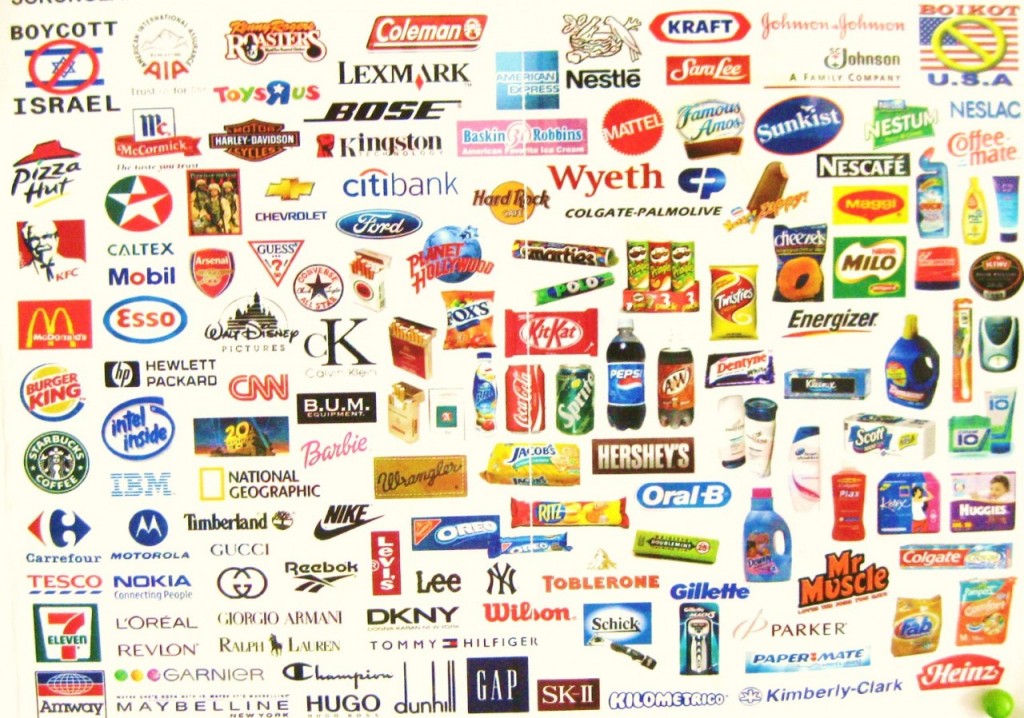
References
[1] Settlements by B’tselem (2014)
[2] Diplomatic and Legal Aspects of the Settlement Issue by Jeffery Helmreich (19 January 2003) Jerusalem Centre for Public Affairs.
[3] EU (finally) applies own law on Israeli settlements by Bill Van Esveld (23 July 2013) Human Rights Watch.
[4] Jewish Settlement in the Land of Israel by Israel Ministry of Foreign Affairs (29 October 2002).
[5] Remarks by PM Benjamin Netanyahu to the U.N. General Assembly (23 September 2011) Israel Ministry of Foreign Affairs website.
[6] An ‘boks amach’:* the Irish Anti-Apartheid Movement by Tom Lodge (2006) History Ireland, volume 14 issue 4
[7] Coca-Cola Boycott (2009) by Latin American Solidarity Centre
[8] Irish team says it will not boycott Olympics (8 April 2008) RTE News
[9] ADL Calls on Government of Ireland to Reiterate Stand against Boycotts of Israel in Wake of Teachers’ Union of Ireland Decision (9 April 2013) press release by Anti-Defamation League
[10] Inside out: a Jewish and democratic Israel by Jonathan Rosen (3 March 2014) Jerusalem Post [11] U.S. on Israeli boycott law: Freedom to protest is a basic democratic right by Natasha Mozgovaya and Shlomo Shamir (12 July 2011) Haaretz.
[12] Boycott Law lets Israel defend Itself by Elihu Stone (13 July 2011) Jerusalem Post.
[13] The Toll in Gaza and Israel, Day by Day by Karen Yourish and Josh Keller (8 August 2014) New York Times
[14] Hamas could have chosen peace. Instead, it made Gaza suffer. by Dennis Ross (8 August 2014) Washington Post.
[15] Hamas drops call for destruction of Israel from manifesto by Chris McGreal (12 January 2006) The Guardian.
[16] Gaza Strip by United Nations Relief and Work Agency (1 January 2014).
[17] It’s all Hamas’ fault, right Israel? by Gideon Levy (31 July 2014) Haaretz.
[18] Must-read articles on anti-Semitism in Europe amid Israel-Hamas fighting (14 August 2014) Haaretz.
[19] Anti-Jewish hatred is rising – we must see it for what it is by Owen Jones (11 August 2014) The Guardian
[20] Press release: Minister Shatter launches IRIS, the Joint Ireland Israel Programme on Road by irish Minister for Justice, Defence and Equality (14 March 2013)
[21] Ireland’s Transformation into one of the most hostile countries toward Israel by Sarah Leibowitz-Dar (20 November 2012) crossposted onto Coordination Forum for Countering Antisemitism from NRG website
[22] Boycott call as Ireland pays Israel €3m for military goods by Shaun Connolly and Seán McCárthaigh (9 August 2014) The Irish Examiner.
[23] For the exporter: Israel-Ireland Trade Relations (2014) by State of Israel Ministry of Industry, Trade and Labour.
[24] Letter to UN Sec-Gen on appointment of William Schabas by Ron Prosor (12 August 2014) Israel’s Permanent Representative to the UN, Israel Ministry of Foreign Affairs
[25] How the United Nations Human Rights Council Unfairly Targets Israel by Ido Aharoni (30 July 2014) Time Magazine
[26] Country mandates page (1 October 2014) UN High Commissioner for Human Rights
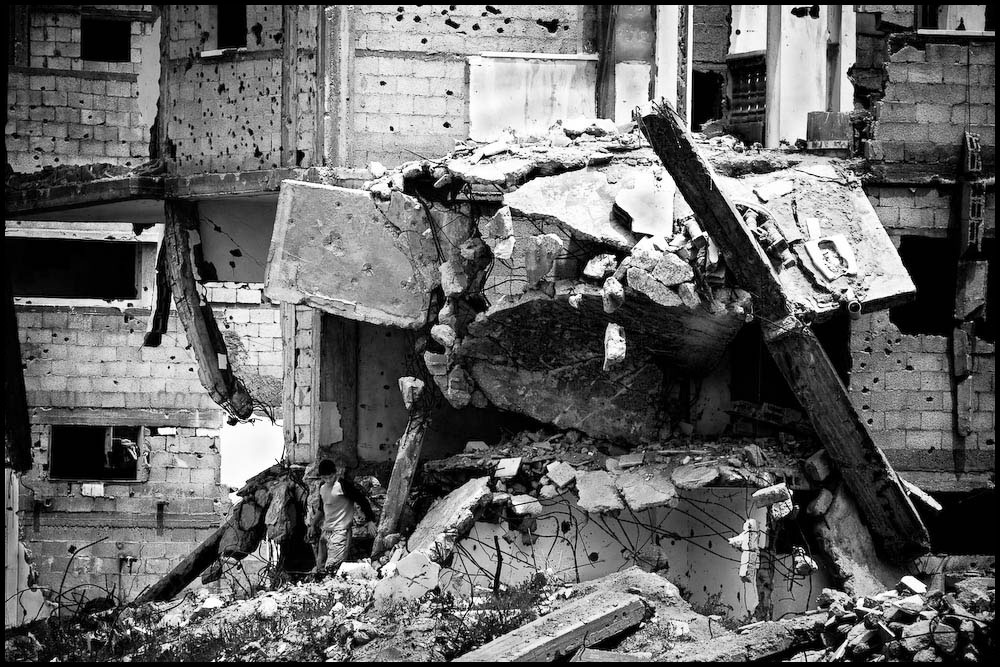
Update: 3-point guide to Palestine and Israel
A guide for teachers and educators
(October 31, 2023 update)

From Nicaragua to Ireland: Fairtrade Coffee and Global Solidarity
Fátima Ismael of Soppexcca, Cathal Murphy from Bewley’s and Fairtrade practitioner Kieran Durnien discuss 20 years of Fairtrade coffee solidarity linking Nicaragua and Ireland.
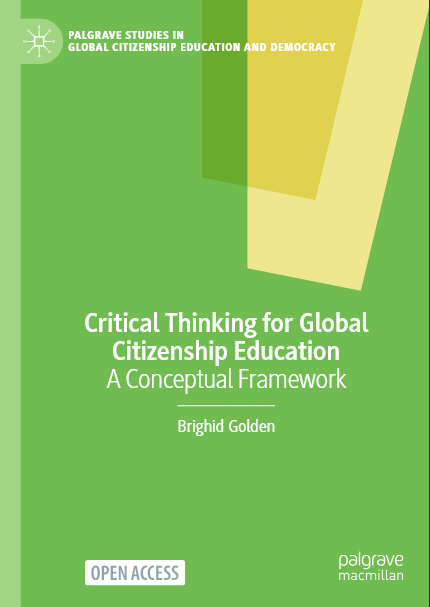
Critical Thinking for Global Citizenship Education
Join Brighid Golden for the launch of her latest book, ‘Critical Thinking for Global Citizenship Education: A Conceptual Framework’
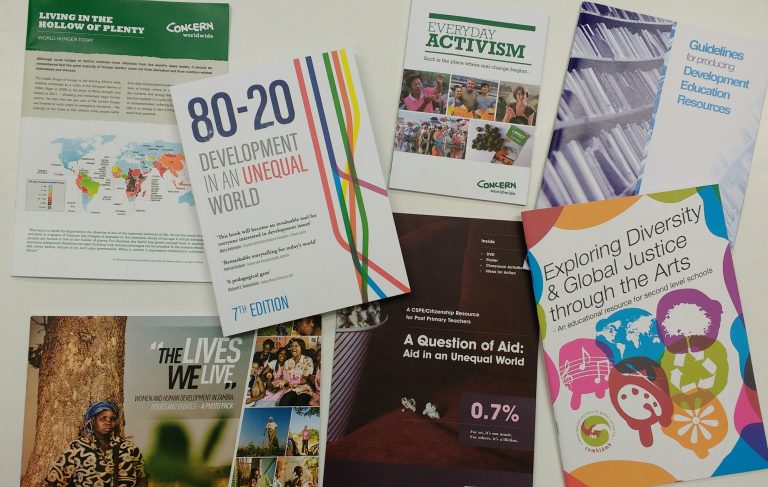
Your voice matters – 2026 user survey open
It’s January, its 2026, and we want to hear what you’d like us to feature or work on in 2026.
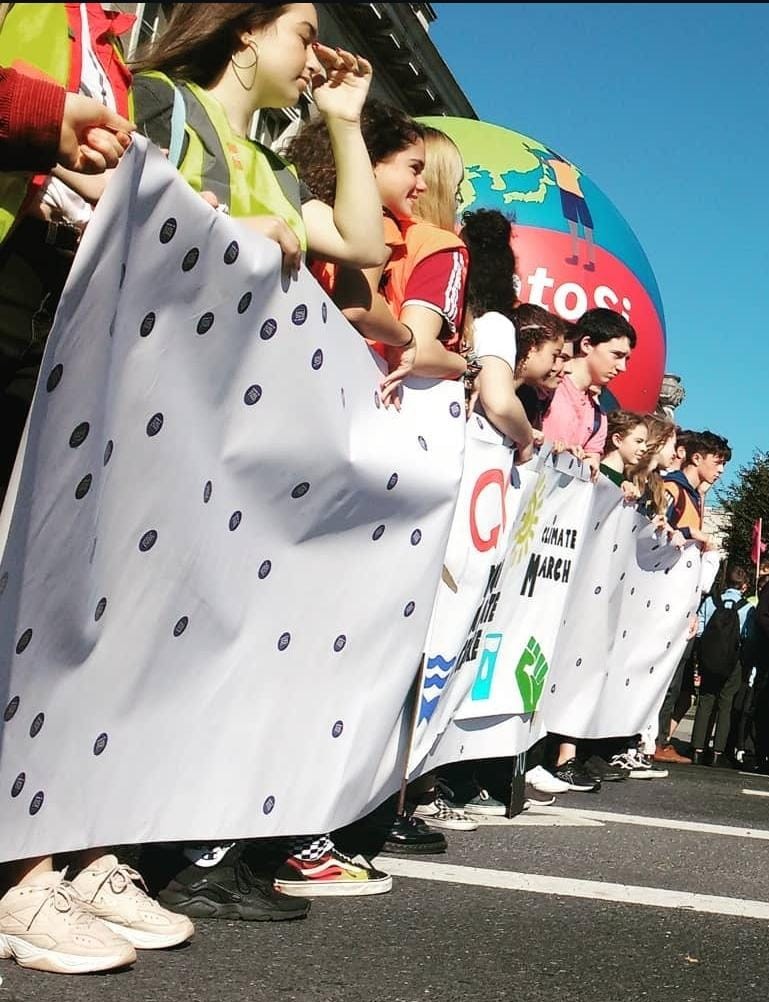
Calling Post Primary Teachers – Survey Participation Request
Your voice is vital in shaping the future of education for sustainable development in Ireland. Join a national survey for post primary teachers in October, led by DCU researcher Valerie Lewis
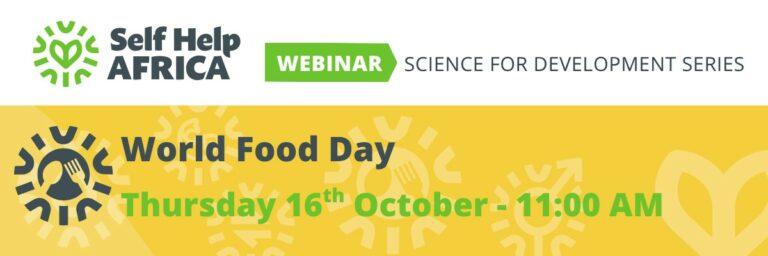
Webinar: Science for development on World Food Day
The webinar will feature YSTE projects, from Santa Sabina Dominican College (Dublin), Moate Community School (Westmeath) and CBS Thurles that focussed on nutrition and better food production, with Self Help Africa’s nutrition and gender specialist in Ethiopia, Sara Demissew.

Student & teacher webinar: Food, hunger and SDG 2
Join the World Food Day webinar for post primary school students and teachers which will explore SDG 2: Zero Hunger.
